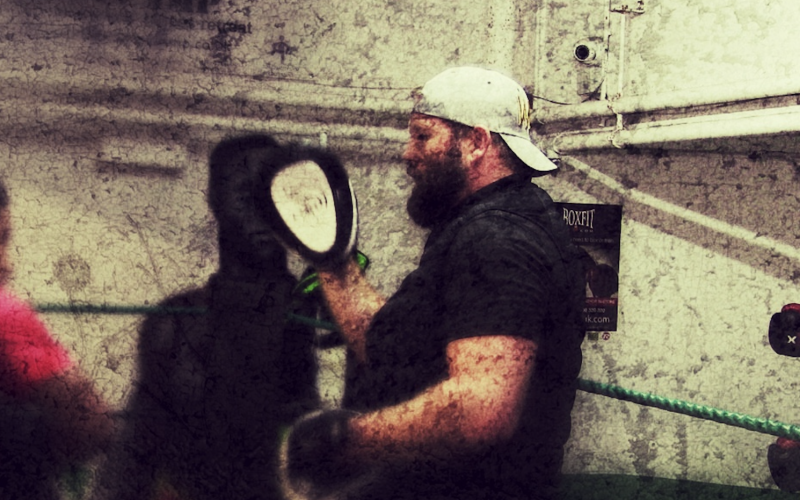The Reluctant Roadman: the true story of children enslaved in Britain’s county lines
Momodou* is beautiful. At seventeen he is a super-middle weight but as he grows into full manhood, he will box quite comfortably as a light-heavy weight. As of yet he has not mastered the power that resides within his long limbs. He should be a natural jabber fighting on the outside, throwing fast ones like a young lion circling his prey. But he doesn’t utilise his reach just yet, as if he doesn’t believe in the jab. He’s also too stiff; like most youngsters he cares about looking like a boxer rather than being one. He pushes weights making him cumbersome and gives his lead punch a clubbing feel to it, you can spot it from miles off. If he laid off the weights, he would be looser, more relaxed and his movements would be more elegant. But when I say, beautiful, I don’t mean it in terms of looks. It is true, he is handsome; two scars lace his right eyebrow, a set of sad eyes sit on an open friendly face. It isn’t his overall appearance that makes him thus but dare one say it, his goodness.
Momodou is quiet and unnaturally polite. He calls you sir, even when you tell him not to call you that. There isn’t any ‘bruh’, ‘fam’ or ‘blud’ when he addresses you. He makes you feel old on account of his formality and it feels damn weird. Considering what he’s gone through, this kid should be like Iron Mike- a beast, a fucking sweary wounded monster or like a Bigger Thomas. The arc of his life trajectory should be as follows: childhood filled with misery, followed by crime, degradation and prison and/or death. His utter poverty and family life should create the type that fights, that mauls, that kills. Yet, Momodou is like Dostoyevsky’s Idiot, possessing a Christ-like naivety that is beautiful. ‘Golden carp’, as the Kurdish saying goes, ‘is found in muddy waters’. The question one is confronted with is how to hold on to this golden carp?
The kid can be a champion, he has all its hallmarks: he has hunger and a willingness to graft. Temperamentally, he is one of those ten thousand-hour guys who relies on the neuro-plasticity of the brain: through countless hours of repetition, he hones and perfects an action until it becomes a habit. His trainers say he is a pleasure to work with. They don’t need to scold him. He hears and obeys with a ‘yes, sir’. The challenge for Scott Welch, British heavy weight champion and Jashar Haxihiu, a young refugee Albanian (both killers in their own right), will be to instil this most primeval instinct in him, to awaken that killer inside. They have to teach him that wry, perverse pleasure from landing a punch in a guy’s face seeing the eye twitch in pain; savouring the sight of a man sucking it in as he ponders the debilitating shot to the liver, or the sight of purplish claret running down a man’s nose. And yet, how does one do that without exposing him to privation? One has to do what the characters did to the main protagonist, Buck, in Jack London’s Call of the wild. Beat the dog to an inch of his life. Momodou, a kindly ‘civilised’ dog like Buck, has to be subjected to privation, pain, loss, grief and hunger until he discovers that primeval wolf within. Buck had to be broken by the 19th century cruel Alaskan gold rush to find the primeval wolf within and only then could he rest in quiet.
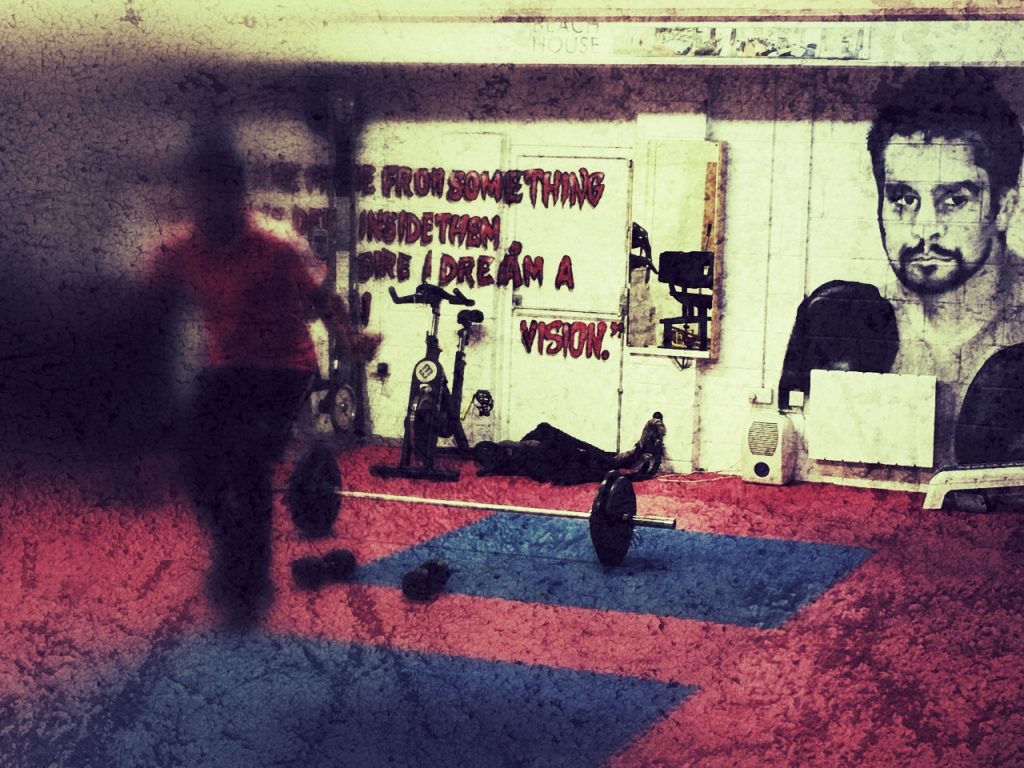
And yet should one? Is it responsible to subject Momodou to this if it isn’t within his nature? I used to look at Cus D’Amato, Mike Tyson’s mentor and trainer, and admire him. Now I am not so sure, in fact I blame him. Why did this great trainer only encourage the warlike nature within Iron Mike Tyson? Perhaps Cus reasoned that when life is at its most bestial as it was for Tyson, only the strong, shrewd, and cunning would survive. There should be no such thing as a harmless man after all. But why did he not bring out the angelic side within Mike? Help him to temper those appetites which made him stumble during his peak and make him stumble still? Why did he only teach him about Pepin, the Carolingian king, and an under-arm jab that aims to push the nose bone into your opponent’s brain? Why did he not teach him about chivalry, mercy, brotherhood? Why turn him into the human embodiment of a pitbull when Tyson possessed an IQ of 160?
Yet, would Iron Mike be the man he is, the youngest heavy-weight champion of the world if Cus hadn’t done what he had done? Perhaps even Buck had to endure those privations to experience love and redemption so intensely. After all, it was only after he met his final master, John Thornton, who enveloped him in his love, that the St-Bernard-Scotch Collie experienced that sensation so intensely. Would he have appreciated it otherwise in sunny California?
Perhaps in Momodou’s case, Cus’s philosophy might be justified: his life has up to now been pretty bestial. Momodou was born in Lambeth to an English mother of Indian heritage with an absent West African father. His father abandoned his mother and she had a string of no good partners that beat her whilst putting money on the table. The truth is the social services should have intervened when he was five but they didn’t. It was the age of austerity after all and Momodou spent his young life moving around London with his half-siblings eventually settling on a broke back poor Hackney council estate.
Now, I should add that, I am not unfamiliar with Momodou’s circumstances having experienced the impact of murder, poverty and parental abandonment myself. I grew up blotting out memories of living in a slummy B&B in Earls Court. I remember my belongings strewn on the floor below because our room had collapsed. I remember the joy of possessing a pair of Nike trainers when Diadoras were unfashionable. To this day receiving a pair of socks gives me secret pleasure because we were always short of them. But, I suppose there were two things that I had on my side.
Firstly, I knew how to get out of my circumstances. Our financial situation was precarious, economically we belonged to the poor working class, but we came from a middle class family that valued and understood education. The social capital, as Pierre Bourdieu puts it, was present for us to understand that beyond the housing estate lay something better. The point in life, as my mother drummed in to us, was to become ‘human’. Part of that was to possess an education which would also bring about economic prosperity. My mother fed us books. My uncles talked of Marx, Lenin, Islam, Capitalism and took us to the National Gallery, Kew, Greenwich, and the Planetarium whilst my mum recited Rabindranath Tagore, Nazrul Islam and the Quran. Secondly, I was also fortunate to grow up in an era where the Blairite mantra of ‘Education, Education, Education’ rang true. I benefitted greatly from Mr Warwick teaching me whilst supported by the taxes paid by Mr Winston who came on the HMS Windrush, Mrs Singh who migrated from East Africa, Mr Jones from Camarthen and Mr Khan’s hard work .
This isn’t the case with Momodou. His house smells of shit caused by a leaky pipe in the toilet that has not been fixed. The ceiling has its own ecosystem of fungi and mould and the wallpaper is flaking off. Whilst developments for the consumption of those ginger bearded hipsters are rising up and organic coffee overflows, Hackney council has done little to remedy the leaks in the flat. In fact, since 2010 the Conservatives cut hundred and forty million pounds from the borough. And despite austerity being supposedly over, will cut a further thirty million by 2023. This means that the council had to become more efficient and so there were further cuts to frontline services.
Momodou’s breakfast consisted of bread and jam. If he went to school he’d get some meat and dinner would be a cold case of Pot Noodles. Now of course, there are worse cases of poverty around the world and, purely from a pugilist’s perspective the poorest places bring forth the baddest fruit. Places like Dubai will never produce legends like Roberto Durán because its inhabitants are as soft and pampered like Mogul princes in the last days of empire. They simply have no appetite for the fight and rely on hungry South American mercenaries to defend their shores. But what grates is that Britain doesn’t suffer from the same level of corruption, climate change and all those other ailments that afflict the developing world. We have it all, and yet we cannot find it within ourselves to help the likes of Momodou. The image of Christmas jumpered hipsters chatting away drinking their masala chai lattes oblivious to Momodou’s Dickensian plight grates. As the Arabic proverb goes, ‘you always know a society by the way it treats its young and old’. Momodou’s situation should be a rebuke to our own notion that we are ‘good’.
The tragedy of Momodou’s predicament is this: he is surrounded by abundance, in the wealthiest of cities, at the centre of the world with so much opportunity, and yet does not possess the ‘how’ to get out, nor does he know what that ‘how’ is. We were taught that through food and books one could travel and expand one’s mind if one couldn’t afford it. And yet his horizons are so limited that he expresses surprise when he finds out that one could ask for more bread when eating at a Moroccan cafe. To watch his face inspect a baklava, the moorish puff pastry laced with pistachios and drenched with honey, is incredible. He eyes it suspiciously picking at it with the fork, you have to cajole him to try the sweetmeat. He breaks into a wide smile when he tastes it. ‘Wow! That’s nice, sir!’ He asks you how much it costs to go to Portugal. ‘On a budget? Six hundred pounds will probably do you’
‘Rah! I thought it would cost two thousand pounds!’
There is a joy in seeing him experience the world anew. The boy has never tried Indian food despite it being as English a thing as an English breakfast. Next time I tell him to meet me at a cafe that serves desi or Indian omelettes fried with onions and chillies served with sweet Bombay tea. ‘Rah’ he throws in spoonfuls of sugar and smiling says, ‘that’s nice you know!’ This is the first time he’s ever tried tea, let alone Bombay tea. ‘I thought it was for adults- what does it do?’ Could you imagine it, the kid doesn’t know the joys of tea! He is missing out on life. Seeing his reaction to Bombay tea, I wonder what it would it be like if I took him around London. What if I showed him the finest Nastaliq calligraphy at the V&A or a Monet at the National Gallery, an Egyptian mummy at the British Museum. How would he react if I took him to behold the splendid view from the Observatory as the sun set on the Greenwich National Maritime Museum? What if I did to him what my uncles did to me?
‘You ever been to Greenwich?’
‘Where’s that?’
‘South, I’ll take you to the National Maritime Museum, its my favourite, what do you think?’
‘I would like that very much, sir.’
There is a pang of guilt, I feel like I am trying to civilise him. And yet, I hope, I can instil in him experiences that give him a taste of life; that life even at its most bleak, can be joyful.
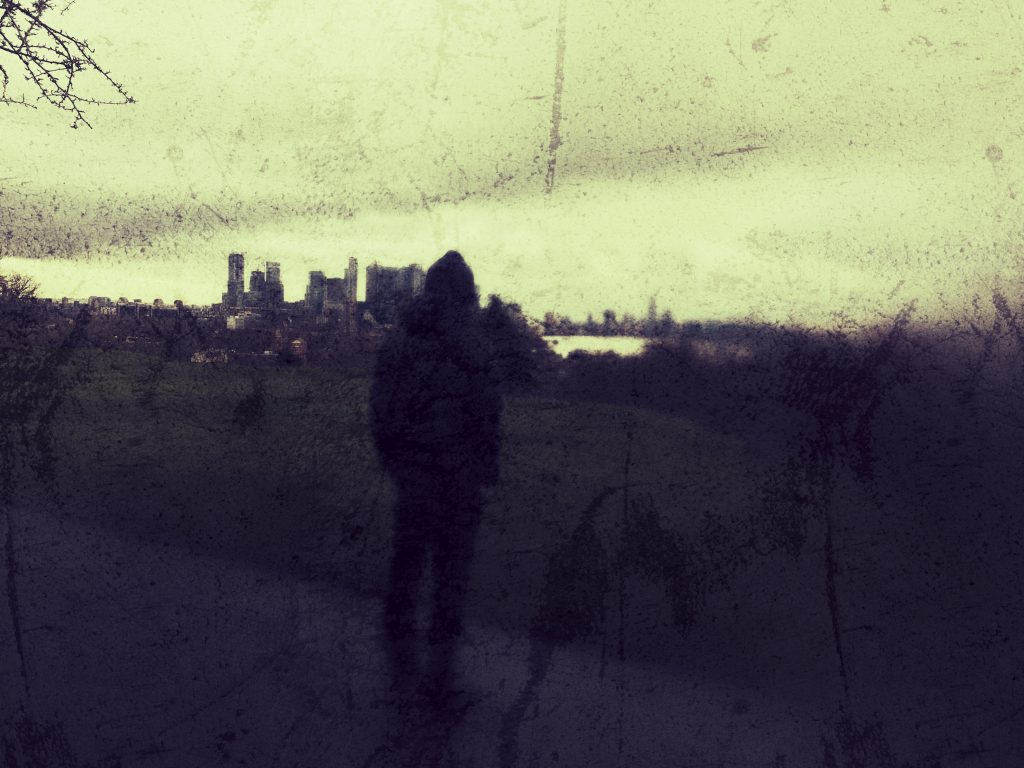
Next time we meet he asks if he needs to wear a suit to visit the museum. I laugh at the naivety, ‘just come as you are, it’s just a museum B’. We walk from Blackheath and down to the museum from the Observatory end. I take him to see the world map on the second floor. He is astounded by the map and ponders it as middle class toddlers run around him with the sort of confidence they get in their mother’s bottled milk.
‘Rah, I need to know more! This is education.’ We go on a tour from London to the Ivory Coast to Bengal to America and back to Liverpool. We talk about the East India Company and their aggressive mercantilism, about the opium they cultivated in Bengal to flog to the Chinese, and when the emperor refused, they sent their gun boats and forced him to keep the trade going.
‘So what,’ he said studying a photo of two opium addicts, ‘were they drug dealers?’
‘Kind of, I suppose so.’
He asks me what ivory is. I point him to the long elephant tusk carved with chained slaves being transported to market. His attention is drawn to a picture of the Mogul emperor Jahangir presiding over the world. King James, due to his sheer insignificance, loiters in the far corner of the picture staring at us glumly.
‘How comes we don’t learn about this in school?’
‘Well, the information is out there,’ I reply pointing to the great general of the Haitian revolution Toussaint Louverture astride his horse, ‘it’s not a conspiracy if that’s what you mean. You just have to find it.’
History is written by the victors and uncomfortable things get glossed over, it is human nature. Who after all remembers the names of Mike Tyson’s defeated foes and their fighting prowess but the enthusiasts?
‘So were these guys bad?’ he says pointing to a finely dressed East India Company (EIC) man in a painting. What should I say? I didn’t want to paint things in black and white, but if truth be told Lord Robert Clive, the first governor of the Bengal presidency, was indeed a savage man. The victor of Plassey had the killer instinct, the sort of instinct that could sniff out the weaknesses in his opponents and take advantage of it. The sort of thing that perhaps the trainers have to instil in Momodou. And yet his opponent, the Nawab of Murshidabad, Siraj ad-Daulah, wasn’t any better, according to the historian William Dalrymple. His cousin described him as a ‘psychopathic bisexual rapist’. History as in life, isn’t always black and white, history isn’t a Sonny Liston versus Mohammed Ali where the former was a thug backed by the mafia and the latter embodied all that was good and beautiful in the world. History is probably more like an Iran Barkley versus Roberto Durán, a former gang member having it out with a tough street scrapper from Panama.
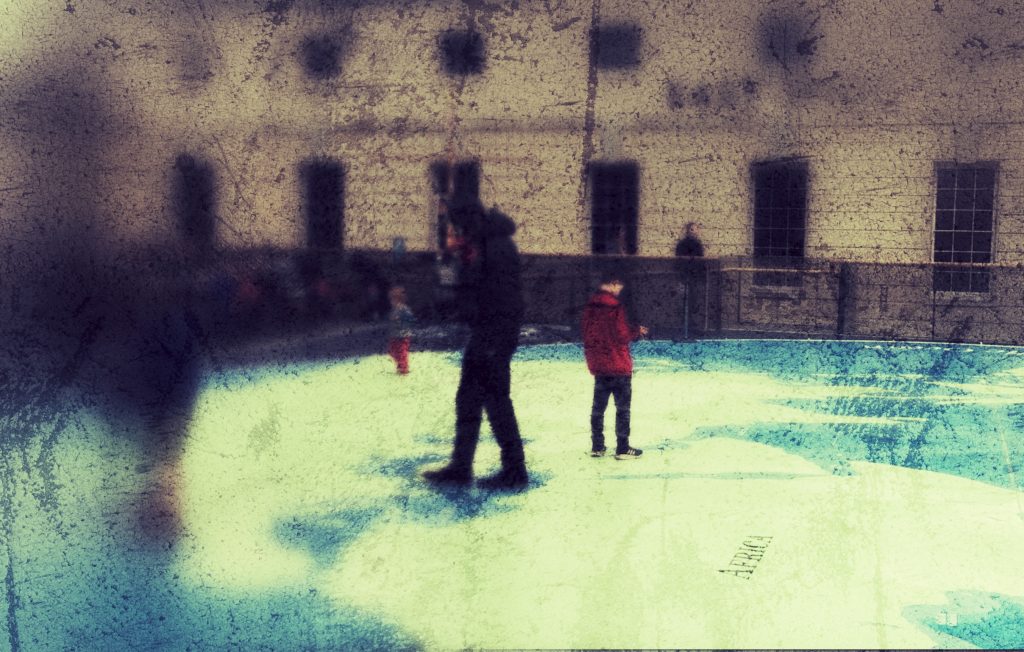
I tried to explain that the EIC also had men like Warren Hastings who was enamoured by Indian and Persian culture, a man who translated the Bhagavad Gita and reined in the company’s worst excesses. And yet the company’s rapaciousness resulted in a famine which led to 1.2 million Bengali souls perishing. And still, in an irony of ironies, in a Leibnizian fashion, both of us, perhaps I more than him, have tasted its fruits.
I didn’t want to merely stimulate indignation and anger in him. And yet was Iron Mike so abhorrent if one put him alongside Sir Robert Clive that plunderer of Bengal? It soon dawned on me, that although I might disdain that hipster in Shoreditch, perhaps I too have become that guy; sufficiently bourgeoise to feel that I have to alleviate my conscience. I too have forgotten Momodou, I too have become that hypocrite who want my kids to get into grammar school and shelter my children from Momodou’s world, and yet look at the deeds of Lord Robert Clive as something entirely different when they are probably not. Perhaps if one delved into counterfactuals, I wouldn’t have an issue with my children knowing or visiting Lord Robert Clive in his town house in Barclay Square and yet avoid the likes of Momodou even though the latter is good. How low has one become? Perhaps it is Momodou who is giving me more than I am giving him? Perhaps it is he who is humanising me rather than me humanising him? Maybe it is I who should be grateful to him rather than him being grateful to me?
If I were to compare the two, Momodou undoubtedly comes off better. Lord Clive had always been an old bruiser and was according to his family addicted to fighting. It was that impulse and insatiable greed that motivated him to take off to Bengal, by far the richest province in Mogul India. Momodou’s descent into crime by contrast was motivated by pietas. His intense attachment to his mother and her dire financial situation turned him into a roadman. This noble sentiment, not greed, is the motivating factor for everything he does.
‘In my early years’, he recalls as if he had stumbled into a life of drug dealing, ‘everything was alright, but then later, I’d say year ten, I started, for no specific reason, randomly missing school…the first thing I wanted to be, I’d say strongly, is an accountant. I still want to be that… but it’s too late…I just enjoyed maths.’ His truanting led to his mother receiving fines which she, being already in arrears on the rent, couldn’t pay. Her partner at the time was physically abusive. Money became tighter when her partner left her, she spiralled into depression and self-harm. The fridge was empty and the rent needed paying so like any dutiful boy he went out in search for work. He answered a job advert posted on snapchat and sold his labour to Richie* and his crew. These young men were arguably some of the most talented Thatcherite businessmen in Hackney. Had they been born in different circumstances they would most probably become the bankers, consultants, managers and city traders who excelled in shortchanging the system and getting away with it. Richie may have been a drug dealer, but the entrepreneur ran his business with cut throat efficacy, forever conscious of the margins his business was making.
Momodou went ‘Country’ travelling outside of London to supply drugs. ‘Country’ isn’t a new phenomenon and has been covered extensively in the media. In essence it is not akin to the mercantilism of a trading company, whereby youths are dispatched to small towns because the market is less saturated and demand for their wares is more. These minors are not subject to the same laws as eighteen-year olds are and as such have greater leeway in the way they conduct their commerce. The first job Momodou did was travel to Brighton. He stayed at an addict’s house where he worked a shift worthy of a ‘zero hour contract’, from 9 am to 3 am when the untraceable phone that drug users called shut shop. In Brighton, ‘all I had to do was sit in the house, I went out on one occasion… I was there with three people.’ Like some demented version of Uber Eats or Deliveroo he had to be ready at a moment’s notice to supply his clients. His rations in terms of food were a few custard cream biscuits a day. Anything extra would be shaved off as expenses by his employers. He was not allowed the rudiments of hygiene like showering. But his job for the first week at least was easy: all he had to do was hold the money whilst the dealer who owned the house delivered the drugs. Apart from the drug dealer being robbed on the second week, Momodou says it was uneventful, adding only as an afterthought that he had been with him when it had occurred. Momodou received two cuts to his left hand but he seemed completely unfazed by the incident as if it was an occupational hazard. He returned to London two weeks later, collected his twelve hundred pounds, showered, spent a few days with his mother and then got ready for a new job.
At that time, Momodou could have left. He didn’t owe his employers any money, but the pay was as he put it, ‘beneficial’. After Brighton, the sixteen-year old had proven himself and got promoted to the ‘elders’. One of these ‘elders’, a mere twenty-three year old of African descent, pulled up in a Mercedes Benz and picked him up from the estate. Momodou did not know him and they drove in silence through the Surrey countryside until they reached the prosperous market town of Guilford. In Guildford, Momodou was instructed to hold some, ‘light and dark’- Cocaine and Heroin. The elder instructed him to sell from an elderly couple’s house who were addicts, and asked him if he had ever held a gun. Momodou shook his head, the elder handed him a gas-powered gun and took out the clip. ‘Don’t worry’ he said, ‘it’s empty, it’s for show’. Momodou slipped it in his pouch. The elder also showed him a safe house if things went pear shaped.
On one such day, there was a knock on the door, the elderly lady opened it. It was her son. Momodou realised something was wrong as soon as he barged through the flat. Her son who he describes as being ‘fake road’ was wielding a knife yelling at him to hand over all the money he had made. ‘I gave him everything because I was shaking. He took my phone…’ Frightened by the incident he returned to the safe house and dumped his bag there; it was there that he remembered the gun in his pouch. He was now angry at the loss of his phone and profits and so decided to return to the elderly couples’ flat to recuperate his losses. As he did so he spotted his robber getting into a car. ‘When he saw me,’ Momodou said, ‘he walked up to me, so I went for my pouch and pointed [my gun] at him, so then obviously he ran…’ He scurried back to his mum’s flat and Momodou followed. The man slipped the money through the mailbox, Momodou satisfied returned to the safe house completely forgetting his phone. It was only at the safe house that he remembered his phone and so retraced his steps to the couple’s flat only to find several police vans outside. As he sought to evade them he was caught in a police helicopter’s spotlight and was arrested. At the station he confessed, the police, Momodou said ‘were actually bare nice’. He was bailed because his testimony checked out and he was driven back to Hackney. That was how his mum found out about his activities.
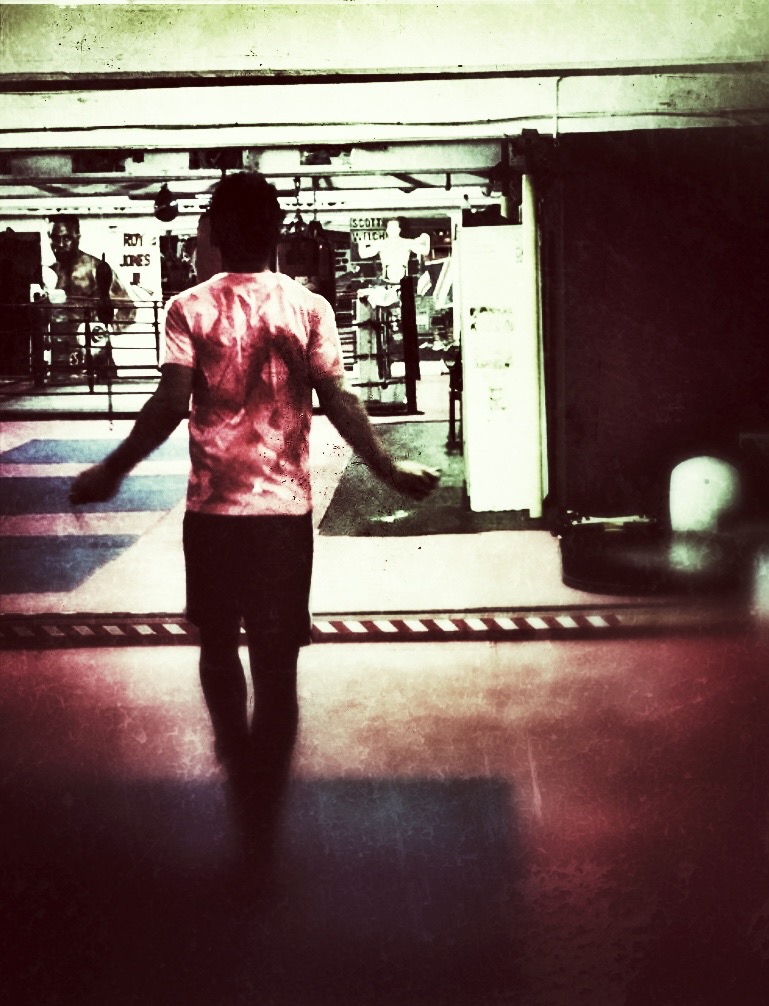
Momodou’s employers didn’t fret too much about the incident due to his willingness to work. Before his next offence he travelled to New Market, Cambridge and Sudbury where he sold ‘food’ to the wretched. ‘The work’ he says was more organised and ‘there were no inconveniences’. He was arrested again when he was doing a shift in Stevenage. He had been buying his ration of custard creams at a corner shop when some officers turned up. They explained that his ‘uncle’s’ house where he was staying at was known as a drug den. They asked if they could search him. ‘I swear down, I just said yeah, I knew what I had on me, I knew I was in trouble.’ Momodou got done for possession without the intent to supply and bailed under investigation. When he got back his employers rebuked him, ‘You lost a lot of money,’ they said, ‘but it was calm.’ Momodou after all was a ‘key worker’, he could repay the debt. Moreover, Momodou felt invincible, thinking that the law couldn’t touch him due to his young age, and he would make good his debt. But what he did not realise was that this was the beginning of his enslavement. He was in debt bondage and would have to work for the gang in perpetuity to pay of his debt. But this sort of exploitation was not unique to Momodou, this was something normal for thousands of children involved in the UK county lines drug business. It is such a common practice; the kids don’t even know they are modern slaves.
Still only sixteen, Momodou’s third offence was in Carlyle. He stayed at an old drug addict’s house for a month. It was his last day and was going to the station in a cab when he was pulled over by a police van on a roundabout. It was a set up, they had been surveilling the house whilst he was there. He was feeling poorly, having only had custard creams biscuits for the whole month and didn’t want to make a run for it. The police arrested and charged him with money laundering due to the two thousand pounds in his bag which he could not account for, and selling Class A drugs. This time the police were more aggressive, he said. They pushed him about telling him that he was going away for a long time. And so for the first time in his young life he saw the insides of HMP Wetherby in Yorkshire.
Momodou is surprisingly positive about his prison experience. ‘If I was to summarise prison life I’d say it was calm’. Most people were inside for robbing cars and joy riding- countryside crimes. The only thing that pained him was his mum: ‘I was bare sad thinking about my mum, praying that she was alright’. He remained in custody for several months, but one of his friends, Dean*, a pizza delivery man, checked up on her. ‘He was the only one who was sending me money- everyday he sent me letters, what’s going on. Still got the letters in my house. I read it randomly, it reminds me of how much he helped me. He always checks on my mum.’
Momodou got along with the inmates, and he was polite to the prison officers, no doubt behaving the way he does with me. I understand why they were so helpful to him. Perhaps they also saw what I saw in him. Although he had been assigned a social worker a long time ago, that presence was not felt until he was inside. This time they got stuck in. They asked him if he wanted to go into care. He agreed wanting only to take the burden off his mother. This was when he met Gabriel, a social worker, who as Momodou puts it, did his research, he visited his house to see for himself how he lived and understood where he was coming from. Momodou was tagged and put in with his foster carers, David* and Mary*. But the peace did not last long. He owed people money. His employers got in touch through snapchat, ‘ey yo, when you comin’ back to work?’ He explained what had transpired, that he was on tag and he didn’t want to be part of it any more. But they insisted on his returning to work; he was in debt after all and debts need to be repaid. ‘Just wait innit,’ he said staving them off and they gave him six months respite.
They got in touch when the six months were up. Naively, he went to meet them in a park. There he was attacked, blindfolded and taken to different houses for a month all over the country. He had to work his debt off. He didn’t know where he was because they blindfolded him and moved him during the night. His phone was also taken off him. Once a week he called his mum reassuring her that he was fine and that she shouldn’t worry. Had it not been for a police raid the ordeal would have continued for months. When the police raid happened he had been sleeping. He woke up to the sound of the phone ringing. He was surprised to find a pile of A-class drugs next to him, he had not seen that before he turned in. The phone rang again, he answered to the frantic voice of his boss telling him to flush the drugs down the toilet, ‘it’s a fucking set up!’. The drug addict who owned the house had set him up and put the A-class drugs next to him whilst he had been sleeping and called the police. As the information sank in he heard banging on the door. The police were bashing through, Momodou rushed to the toilet desperately trying to flush the A-class down but it was futile. ‘Being arrested’ said Momodou, ‘was the greatest thing that could have happened to me’. The courts believed him, and were lenient towards his tag violations.
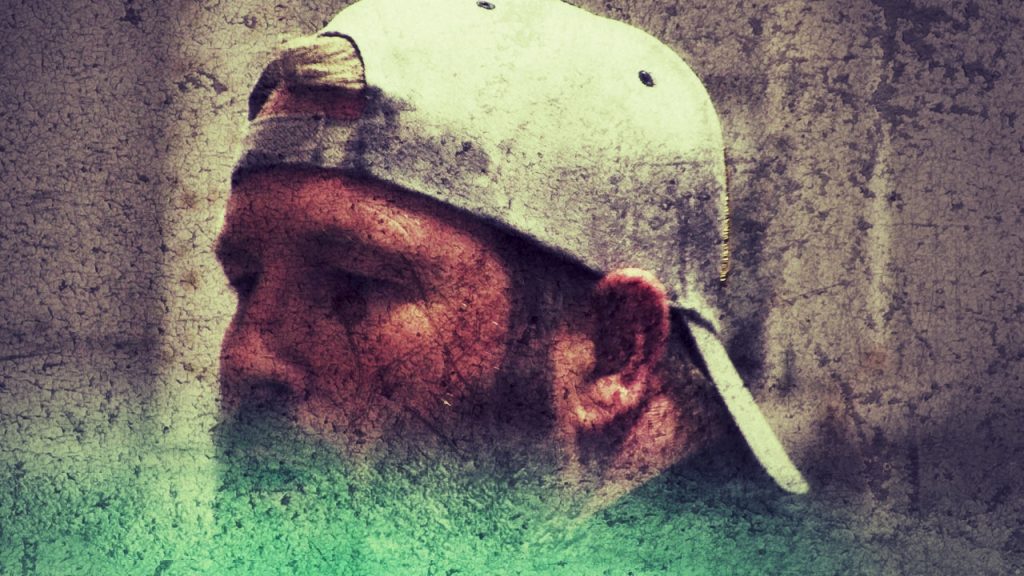
Back on tag working with his social workers, they told him to be more selfish. Yet how could he? He was now in more debt due to the police raid. He owed Richie and Co, in his own estimation, around ten thousand pounds but perhaps it was double or treble that. They had already thrown a brick though his mum’s window to send him a signal that they wanted their money back. How could he be selfish when all he wanted was to move her out of Hackney as soon as possible? What the professionals don’t understand is that one cannot subvert a noble impulse like love and duty. Rather, you had to validate and affirm that emotion. How could one ask a man to think about himself when he had no one in the world but his mother? Frankly speaking it was lowly behaviour, unchivalrous conduct that any man worth his salt, would loath. Rather, you had to build the closeness with your mother and embark on a journey together; where she was made to understand that if he was allowed to build himself up, eventually, he would take her out of her present situation.
But it was a woman who made the difference in the young man’s life. Jasmine believed in the redemptive power of boxing and started him off. She enabled Momodou to devise a strategy that would allow him and his mum to get out. She gave him something that he could look forward to that had a close resemblance to hope. The case worker took him to an old boxing hand, Bruce Smith, a British Jamaican ex-army man with tours in Germany and Northern Ireland under his belt. In his younger days, Bruce looked like a bona fide Apollo Creed, a middle weight knock-out king. Bruce had put in years of youth work in Lambeth and still has youngsters crossing over on their BMXs at night, ‘Coach!’ they say fist bumping him, ‘whagwan!’
He’d reply gently scolding them with a hint of patois in his voice, ‘man, where are you, how come you’re not coming to the club?’
‘Ah coach, you know how it is!’
‘Stop the stupidness, come!’ He’d give the man a mock slap on his shoulders. Bruce was all love and defied the idea that generations could not communicate with each other. What was more, he had produced many a fine boxer in his time.
Jasmine introduced Momodou to his club, Sting ABC, and Bruce taught him the fundamentals of boxing. He was exacting when it came to footwork. However, at the time, as Momodou readily admits, whilst he enjoyed it, he didn’t think about pursuing it any further than what was required off him. It was only because Jasmine had gone to such efforts that he decided to carry on.
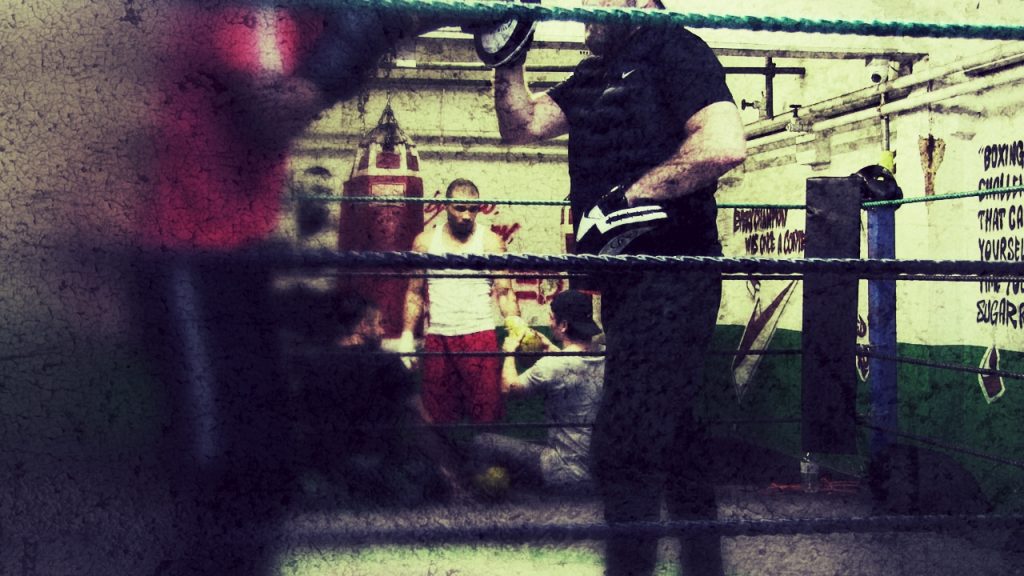
‘I got two YOT workers,’ he says, ‘they care’. For the first time, they or ‘society’ if you will, had invested in him. This young lady, unpaid, went out of her way to involve Scott Welch, former British and Commonwealth heavyweight champion who at one point acted as Mike Tyson’s bodyguard. He came down from Brighton and Hove ABC to work with Momodou and enveloped him with his curiously weird form of tough love. Momodou knows how to wrap his bandages around his fists, but Welch wraps his hands for him telling him an anecdote about the time Frank Bruno punched him in the rib, involuntarily throwing in an odd swear word that despite its edge has a tenderness to it. He’d sit with you in the cafe giving you one of his wisdoms that runs something like this: ‘the world is full of cunts, ’es one, she’s one, you‘re one to someone, we’re all cunts to someone in life.’ But then despite his harsh outlook on life and humanity, he is very careful to make sure his boys are protected from head injuries as well as the knocks that life throws at them. ‘Dempsey fought in the 20s, times are different now, we got science now, so you need to catch the punches’. Momodou responds well to Welch’s life lessons and always ends the conversation with a ‘yes, sir’. Welch has become what John Thornton became to Buck.
Through his rough ways and charisma Welch has done something so simple and yet so remarkable in a young man’s life. He believed in him and brought in Jashar Haxihiu, one of Smith’s proteges and former rival Julius Francis to help Momodou achieve his goals. ‘At first,’ Momodou says, ‘when Scott said I had potential, I’m like it’s fake, a plot between YOT and Scott…when Scott tells me I could be a good boxer, in my head I’m like nah but the more he says it, I’m like yeh, he might actually be right- don’t know it’s hard to have faith in myself.’
But Momodou doesn’t realise that despite the disparity in age, race, background not to mention size, the two men are not un-similar. Welch understands him. The former British heavyweight champion from Brighton was the illegitimate son of a professional boxer whose drive in life had been to get recognition from his biological father. Welch too got involved in a life of crime acting as a gangland enforcer until boxing saved him. He went on to championship success but unlike his friend Tyson he made shrewd investments here and there, and retired a wealthy man with a bit part in Snatch and was recognised by his biological father for his boxing abilities.
By the time Welch took him under his wing Momodou had four or five people, perhaps even more, who worried about him, who cared for him: even the hardest baddest man needed that. It is these people around him, these structures, those human relationships that keep Momodou on the straight and narrow. It is also these same trainers that have to develop and hone those instincts that will turn him into a prospect if he sticks to the hurt business. As he readily admits, he needs to be constantly doing something, to have purpose, to keep his mind occupied. That black tag he wears around his ankles isn’t a deterrent. It only means he has to be in by eight o’clock at night. He can deal drugs all day long if he wanted to. He can even cut his tag, run and the authorities could do nothing about it. This is why he has taken ownership of his destiny. He knows that society doesn’t believe in him but maybe he has started to believe in himself.
And yet this self-belief is a fragile thing and needs cultivation. In March this year, 2020, all of those structures will come to an end and Momodou will have to fight a bout that is not fought within the square circle. Prepared or not, Momodou will have to battle a wily opponent called ‘life’. When he turns eighteen, all those mentors and youth workers will be gone. He may join many others like him, placed in a hostel till he’s twenty-one and paid sixty pounds a week. He will be unskilled and unqualified and the shadow of six hundred pounds a week and the sad spectre of his mother will be looming over him like Hamlet’s ghost. It would not be unsurprising if Momodou went back to his old ways. One doesn’t need to be an accountant to know that six hundred pounds sounds much better than sixty pounds a week. But Momodou has a glimmer of hope, ‘Scott’s told me to come down to Brighton so I can box there and work in construction. I need to move my mum out of there as soon as possible.’
Still, I can’t help but ask whether putting your life on the line is the only way for Momodou to get out of his situation. I can’t help but thinking that there must be thousands of young men and women like Momodou. Perhaps he is one of the lucky ones, he has a John Thornton like figure in his corner. There are many other men and women who don’t. Perhaps we are raising a generation that has not been shown any compassion and so will not show us any compassion in return. And soon it will come to pass that their pain, trauma, even rage will bleed into our own nice bourgeois suburbs, and they will take that which we should have given them willingly whilst we were enjoying our organic coffee. And then, when we build more jails with bigger walls, and impose more draconian measures in place, we will create more men like Iron Mike, failing to realise that perhaps Iron Mike had actually been like Momodou, a gold carp in muddy waters which we didn’t manage to grasp hold of and we became the poorer for it. As the old proverb goes: ‘A child who is not embraced by the village will burn it down to feel its warmth.’
By @tamhussein
* Some names have been changed to protect their identity
